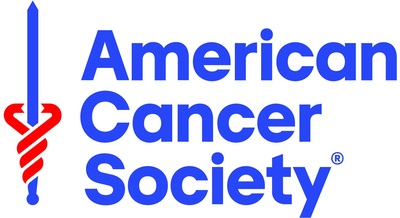Press Releases
ATLANTA, Nov. 17, 2020 /PRNewswire/ -- The American Cancer Society and Pfizer have approved grants totaling more than $3.7 million in 10 communities focused on reducing racial disparities in care and helping optimize cancer outcomes for Black men and women. The goal is to address systemic race-related barriers and disparities in the delivery of care that impact outcomes across all cancer types.
The grants, funded by Pfizer Global Medical Grants and overseen by the American Cancer Society, are part of the Addressing Racial Disparities in Cancer Care Competitive Grant Program, a three-year collaboration working to promote equity in factors that impact cancer outcomes for Black men and women.
Cancer is a disease that affects everyone, but it doesn't affect everyone equally. Blacks experience more illness, worse outcomes, and premature death compared to whites in the United States. Further, Black people have the highest death rate and shortest survival of any racial/ethnic group in the United States for most cancers. Black men also have the highest cancer incidence.
"Black people are disproportionately burdened by cancer and experience greater obstacles to cancer prevention, detection, treatment, and survival, including systemic racial disparities that are complex and go beyond the obvious connection to cancer. Obstacles include structural racism, poverty, lack of access to healthy and affordable foods, jobs with inadequate pay, low quality education and housing, and unsafe environments," said Laura Makaroff, D.O., senior vice president, Prevention and Early Detection, for the American Cancer Society.
Many factors significantly impact a person's ability to prevent, find, treat, and survive cancer. Factors like a person's income, education, their race, ethnicity, sexual orientation, gender identity, their disability status, or where they live, work, and play can affect the choices a person makes, but more importantly can affect a person's opportunity to be as healthy as possible.
"While significant advancements are occurring in the prevention, diagnosis, and treatment of cancer, Black men and women still face barriers to timely and equitable care," said Dany Habr, M.D., Chief Medical Officer, Pfizer Oncology. " Improving care and creating change requires partnership and collaboration across the healthcare ecosystem. We look forward to seeing the outputs of these initiatives and their impact to address the disparities in care that Black men and women living with cancer face today."
In a highly competitive process, each applicant was asked to provide local solutions to local problems across the cancer continuum. The awardees will pursue a variety of efforts, from cancer screening to support in cancer survivorship, for Black men and women that could otherwise go unserved.
The awardees chosen for funding beginning in January 2021, are:
Alameda Health System, CA
Augusta University Research Institute, GA
Medstar Health Research Institute, D.C.
Heart of Ohio Family Health Centers, OH
Johns Hopkins University, MD
Montefiore Medical Center, NY
Rutgers Cancer Institute of New Jersey, NJ
Temple University – Of The Commonwealth System of Higher Education, PA
University of North Carolina Lineberger Comprehensive Cancer Center, NC
Virginia Commonwealth University Massey Cancer Center, VA
About The American Cancer Society
The American Cancer Society is a global grassroots force of 1.5 million volunteers dedicated to saving lives, celebrating lives, and leading the fight for a world without cancer. From breakthrough research, to free lodging near treatment, a 24/7/365 live helpline, free rides to treatment, and convening powerful activists to create awareness and impact, the Society is attacking cancer from every angle. The Society does not endorse any product or service. For more information go to www.cancer.org
SOURCE American Cancer Society

